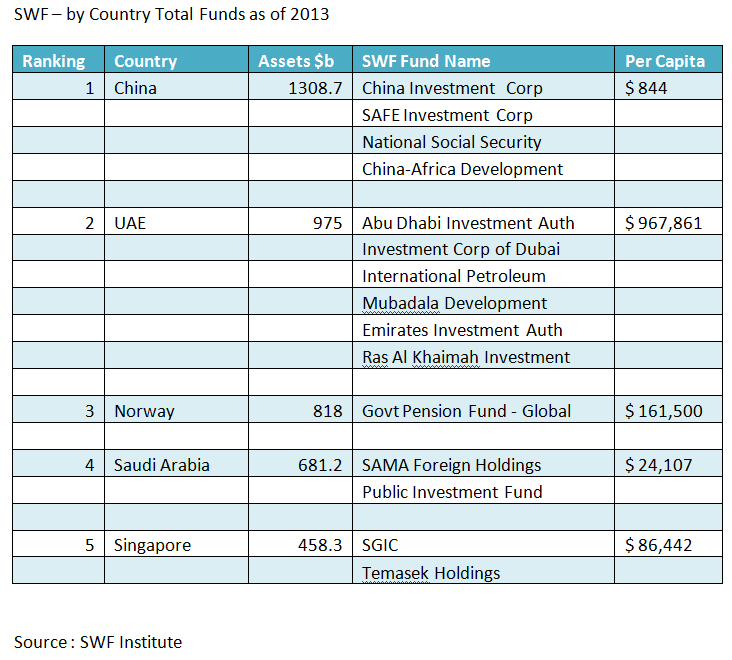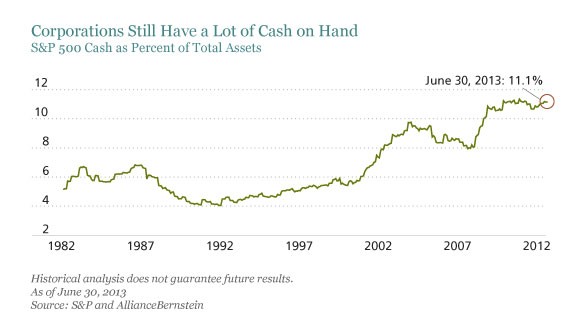With bulging cash balances sovereign funds look for deals
Post on: 18 Июнь, 2015 No Comment

- Image Credit: Gulf News Archive The United Arab Emirates ranked 30 in the index of the just released UN Human Development Report and the top Arab country in the list of 187 countries around the world
Singapore/Dubai: Global sovereign wealth funds (SWF) are set to hasten investing the billions of dollars of cash holdings they have built up in a rebound from the 2008 financial crisis that has lifted their combined assets to a record.
But unlike three years ago, when they rode to the rescue of Wall Street titans such as Merrill Lynch and Citigroup, the investments this time around are seen mostly of a smaller nature and into the faster-growing sectors such as resources and infrastructure.
They may not be the headline-grabbing investments that we are used to seeing from the funds, said Rachel Zeimba, London-based senior research analyst at Roubini Global Economics.
The funds have learnt bitter lessons from their plunge into the financial sector in the crisis, which wiped out billions from their portfolios in 2009. But they have recovered since as markets have steadied and their assets are now at an all-time high of $4.5 trillion (Dh16.5 trillion), up from $3 trillion in 2007.
SWFs have recovered fast from the financial crisis, said Steffen Kern, a Frankfurt-based economist at Deutsche Bank who has researched sovereign wealth funds.
At around $4.5 trillion, their assets are higher than ever, and continued current account surpluses in their home economies promise sustained growth in the near future.
The investors, ranging from Abu Dhabi’s Mubadala and the Qatar Investment Authority to Singapore’s Temasek are expected to become active towards the end of the year when a clearer picture emerges of the European debt crisis and global economic growth.
Asian and Middle Eastern state funds now hold about two-thirds of the global sovereign wealth fund assets, helped by higher oil prices in the Middle East and current account surpluses in Asia.
Sovereign funds overall have been cutting exposure to developed markets, as highlighted by the Government of Singapore Investment Corp’s latest report which showed it plans to invest more money in emerging markets amid long-term challenges facing the US and Europe.
Khuram Maqsood, a former investment director at a Dubai-based sovereign wealth fund, said the funds are likely to resist selling US debt, as a deadlock over raising the country’s debt limit raises the spectre of a default.
It doesn’t serve anyone’s interest for a mass sell-off in US debt. The implied increase in cost of capital with that action will not have a positive impact for the funds too, Maqsood said.
Alternative investments
The funds are also becoming more interested in alternative investments such as hedge funds, private equity and real estate, said Jai Arya, head of BNY Mellon’s sovereign institutions group. Despite the emphasis on diversification, though, the funds still have a third of their assets in the financial sector.

The latest sovereign investor to illustrate the cash hoard was Temasek, which added $7 billion to its cash pile in its last financial year, 70 per cent more from a year ago. Standard & Poor’s estimated that Temasek had cash and bank balances of S$39.73 billion (Dh121 billion) as of March 31, 2010.
Temasek, which does not reveal its cash holdings, said earlier this month it is looking for opportunities in emerging markets and the US. An investment banker who has worked with sovereign funds said strategic investors such as Temasek may still go in for large buys as they want to take larger stakes in companies. Unlike a typical sovereign investor, Temasek owns the assets it manages.
Temasek takes very big stakes in companies and they do maybe less, but more sizeable transactions, said the investment banker who has pitched deals to the state investor and did not want to be named because of the sensitivity of the matter. They are constantly looking at deals.
The Singapore investor has been building its cash levels through profitable exits from some of its investments such as this month’s $3.6 billion paring down of stakes in Bank of China and China Construction Bank .
Other funds, which manage oil or central bank reserves, may look for smaller deals. The GIC has been relatively more active buying stakes in IPOs and investing in convertible bonds, but the banker said GIC’s investments are more market-focused because of a mandate to earn a few basis points above inflation.
China’s CIC, the country’s $300 billion sovereign fund which had bought stakes in Blackstone and Morgan Stanley, is fully invested and is counting on getting a fresh injection of cash from the government to invest abroad. It may increase exposure to emerging markets in Asia and Latin America.
In the Middle East, a higher proportion of state money may go to funds that are seen making investments which help boost the domestic economy, industry experts said.
In the aftermath of the Arab Spring, many state governments doled out massive handouts to citizens and set out plans to boost employment and improve infrastructure.
Abu Dhabi-owned Mubadala plans to spend $16.3 billion in 2011, a substantial portion of which is expected to be for its solar energy project Masdar, some real estate developments in Abu Dhabi and several public-private partnership (PPP) projects in the emirate, according to its bond prospectus.














